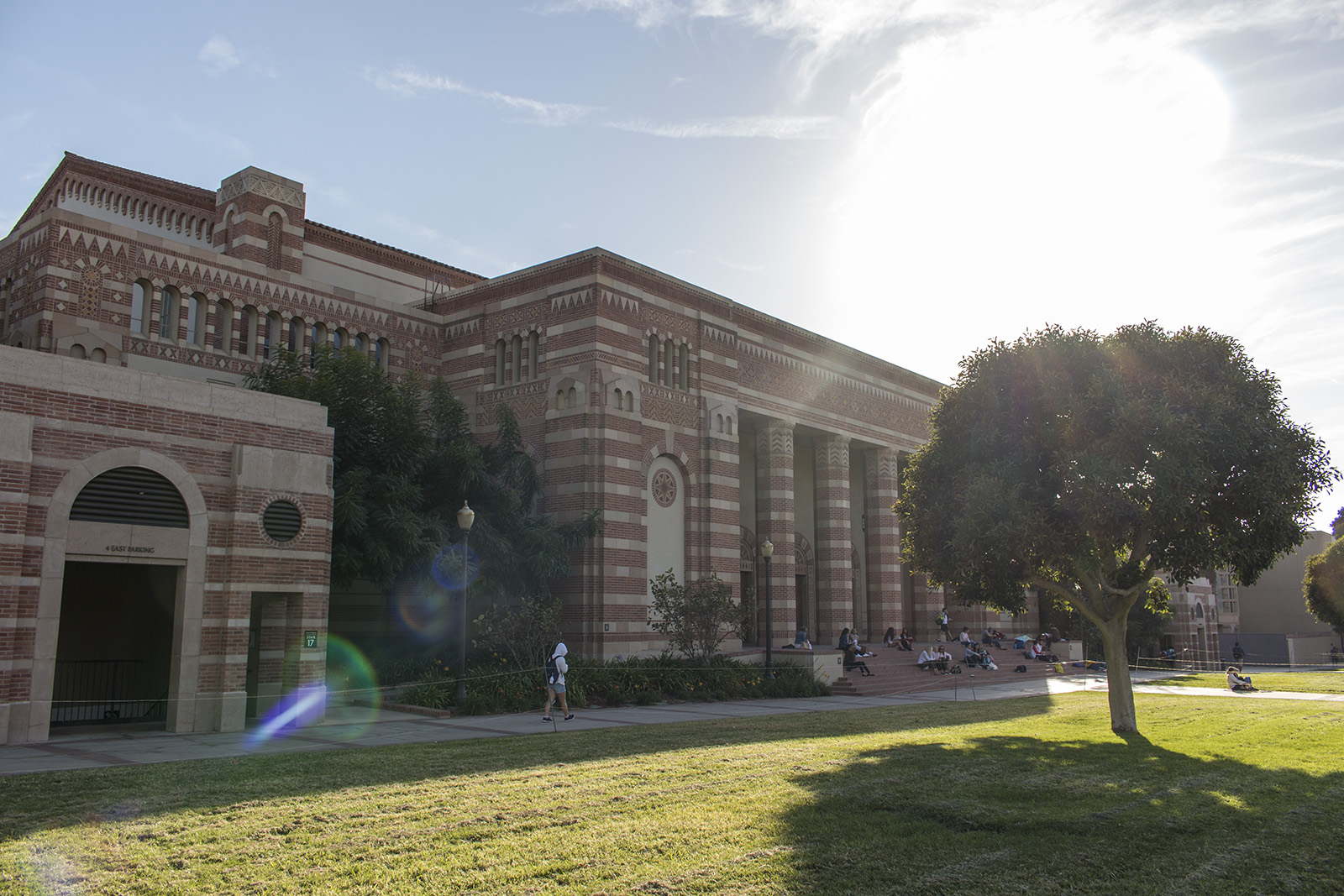Guillaume Kosmala: Professors should release exams to test bank, create level playing field

The Student Activities Center houses numerous student-oriented services, including the UCLA Test Bank. Used by approximately 4,200 students per year, the test bank requires students to donate a test before they are granted access. Professors are able to request that their tests not be made available through the bank. Greek life and honors organizations often maintain their own, unregulated banks. (Jintak Han/Assistant Photo editor)
By Guillaume Kosmala
Oct. 6, 2016 1:27 a.m.
UCLA is a university where a select few are granted an academic advantage based on whether or not they have joined organizations that cost hundreds of dollars a quarter, that have a national history of flagrant racism or that require already high minimum GPAs to join.
But students aren’t to blame for that – lazy professors are.
Members of Greek life gain access to an exclusive test bank with nearly every single past exam for every single class, except for first-time professors and new classes. Honor societies also have their own test banks. Upsilon Pi Epsilon, for example, a computer science honor society, has a “considerable collection of CS exams (about 20 per class) in their test bank,” according to Karthik Vemulapalli, a graduate UPE member who did his undergraduate studies at UCLA.
Meanwhile, the rest of the students have few options other than the official test bank at the Student Activities Center. Access is only granted to students on site, who donate one of their own past exams once a quarter, and who make same-day, five-minute and five-exam print maximum appointments. This is hugely prohibitive to students who take part mainly in classes that require essay writing as opposed to exam-taking or who follow the often-imposed rule against taking past papers home with them.
For the test bank to truly be effective in leveling the playing field for all students, all professors will have to grapple with the ugly truth that no matter what, a minority of students will always find a way to gain access to any past exam.
When pressed, Antonio Sandoval, director of the Community Programs Office, boiled down this issue to one statement: “It’s a priority for us to be on good terms with the faculty.” This means that whenever a professor asks the test bank to keep his or her exams off the database, they are forced to comply. Thus, in comparison to the other available, unregulated test banks, the official test bank selection will always be more constrained.
In my discussion with Associate Dean of Students Debra Geller, it became clear just how high the problem ran. She said that “there isn’t any good way for the university to control what is done by peer groups such as Greek life and honor societies,” and reiterated that the university was “trying to manage the balance of academic access with faculty rights.” In fact, she stated that some faculty members had tried to shut down the official test bank, but the university had fought for continuing its existence because they were aware of the academic imbalance unofficial test banks brought about.
However, according to Sandoval, the projected usage of the official test bank is only 4,200 students for this year – a far cry from an effective counterbalance to unofficial test banks. Geller recognized that the solution was far from perfect, yet admitted that she had very little power to solve the problem, suggesting the only way to create meaningful change would be through the Academic Senate.
Not only does having an official test bank dependent on the professor’s whims create academic disadvantages, but it also promotes lazy test writing. Giving students access to past papers from all faculty members is a great incentive to create more original exams. In an effort to convince professors, the test bank should be sold as an opportunity to compare their testing techniques to other prestigious universities around the world and to allow universities from around the world to learn from UCLA professors.
The major faculty right at stake, according to Geller, is the copyright they hold over their exams. Yet in England, prestigious universities have been able to make it a commonly accepted practice to turn over every exam at the end of the semester without much faculty resistance, with the copyright being filed under the university’s name instead of a specific professor. Imperial College London, the University of Edinburgh, Manchester University, Durham University and many more, all have test banks online, with tests for every class going back many years.
Also, in France the French Tribunal de Grande Instance ruled on Nov. 9, 1988 that past entrance exams to a top medical school were not subject to copyright. As a result, the British trend can be found in France as well, with schools like L’Ecole Normale Superieure and CNAM posting all their past exams online.
UCLA is a public university, paid for in part by taxpayers, and professor research is owned by the university, so exams should be, too.
If these other nations with universities of equal or greater prestige than UCLA, can establish these test banks and level the playing field for their students, so can UCLA. Professors are either exceedingly naive, or they have very little knowledge of the going-ons of the undergraduate student system if they think that simply by asking that their exams be removed from the official test bank, a substantial portion of students won’t have access to them. The reality is that a subgroup of students will continue to have access to past exams due to the unregulated nature of their test banks while the rest of the student body is left out to dry without access to those very same tests.


